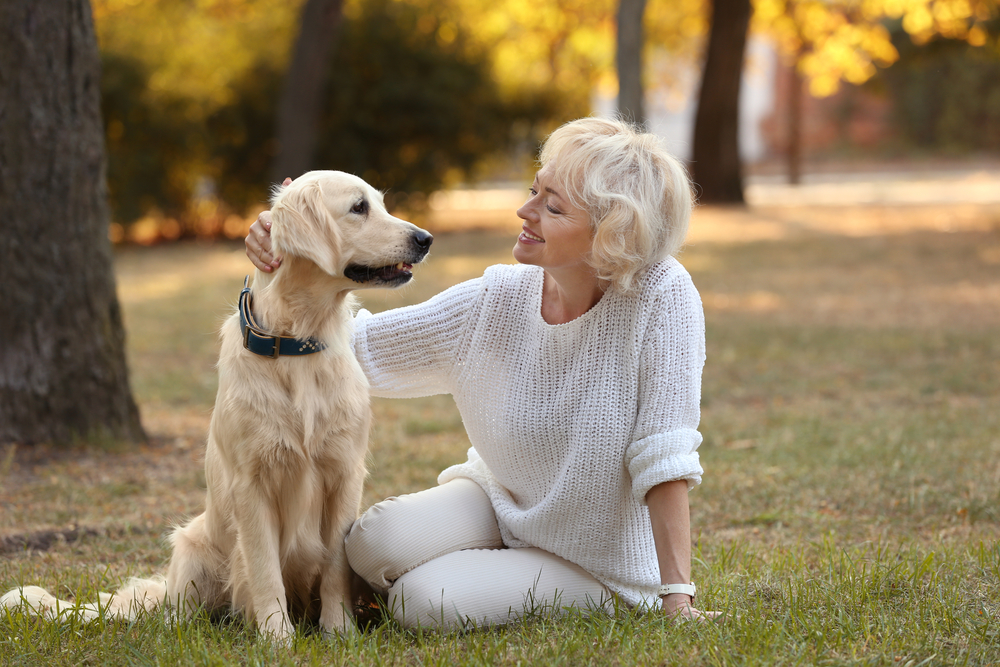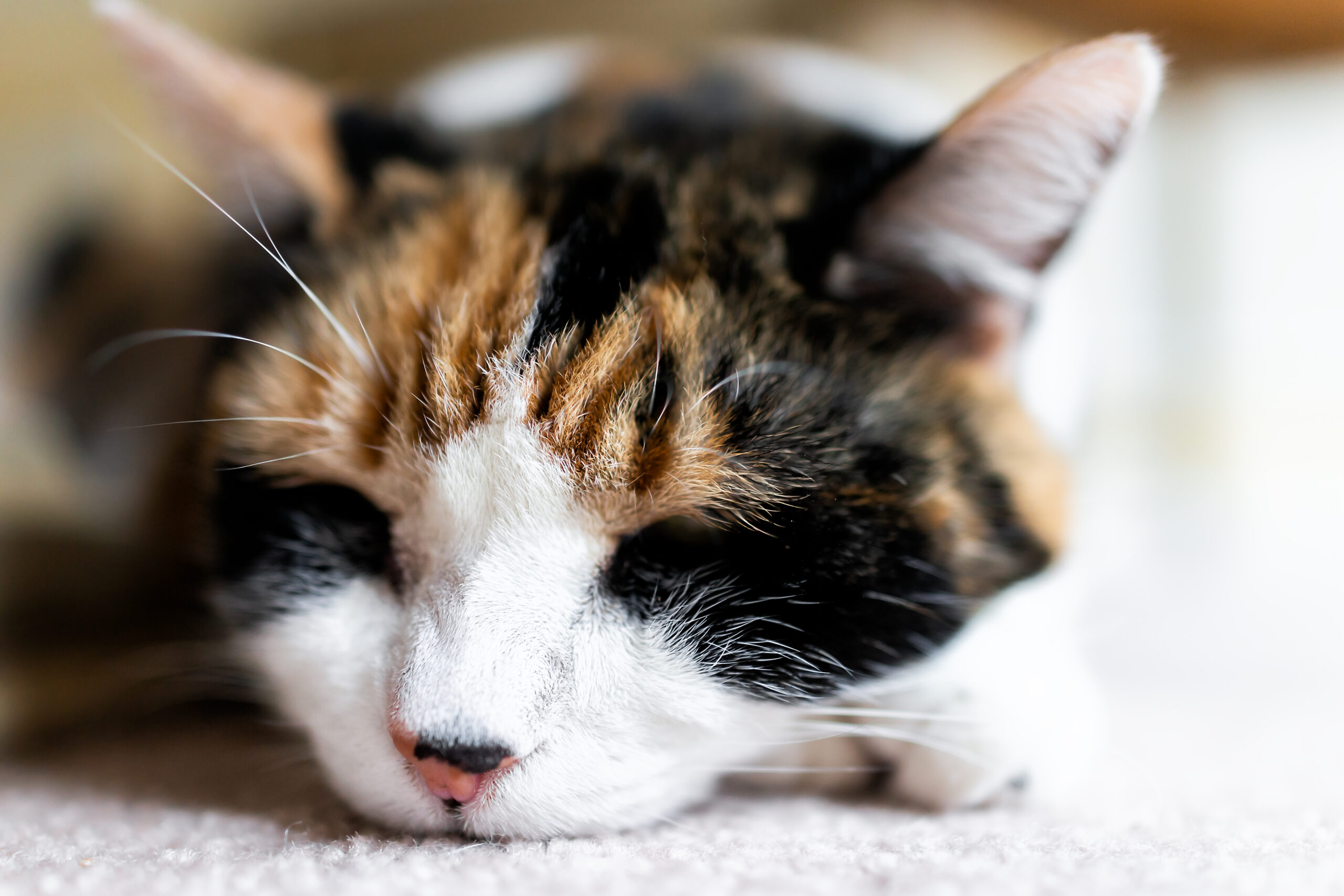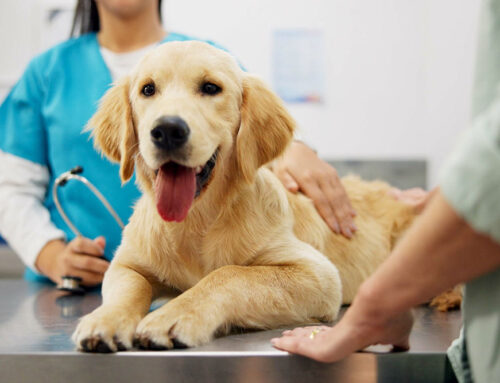Year-Round Comfort: Managing Arthritis in Older Pets
Cold weather isn’t the only time arthritis flares up. Senior pets need consistent care to manage joint stiffness, inflammation, and pain year-round. From joint supplements to low-impact exercise and veterinary therapies, small changes make a big difference in mobility and comfort.
At Animal Hospital Southwest, we’ve spent decades helping pets age gracefully. Our AAHA-accredited team combines cutting-edge treatments like cold laser therapy with modern and time-tested pain management strategies to keep senior pets moving comfortably through every season.
When “Just Aging” Becomes Something More
You’ve probably noticed your dog taking a little longer to stand up after a nap, or your cat avoiding their favorite windowsill perch. Maybe they’re sleeping more, or they’ve stopped greeting you at the door with their usual enthusiasm.
Here’s the thing: not every change in your senior pet is simply “getting older.” Some shifts signal treatable conditions like arthritis, dental disease, or cognitive dysfunction. The difference between normal aging and pain isn’t always obvious, especially in cats, who are Olympic-level experts at hiding discomfort.
Common pain signs include reluctance to jump or climb stairs, panting while resting, difficulty rising from a lying position, and changes in grooming habits. Cats might stop grooming altogether when movement hurts, or they’ll abandon high perches in favor of ground-level sleeping spots. Dogs may lag behind on walks, tire quickly, or show stiffness after rest.
The goal isn’t to stop time. It’s to help your pet age comfortably by catching problems early and adjusting their care as their needs evolve. Small behavioral shifts often indicate bigger issues brewing beneath the surface, which is why monitoring those changes matters so much.
Why Your Senior Pet Needs More Frequent Checkups
Once your pet hits their golden years, the standard annual exam doesn’t cut it anymore. Senior pets need veterinary visits every six months because their bodies change rapidly, and early detection is everything.
Preventive testing for seniors includes bloodwork, urinalysis, and imaging to catch kidney disease, thyroid imbalances, and liver changes before symptoms appear. Trend monitoring is particularly valuable because it shows how your pet’s baseline values shift over time, allowing your veterinarian to intervene before a small problem becomes a crisis. We also need lab work to ensure your pet can handle certain medications and that doses are appropriate, as pets with kidney and liver disease cannot metabolize medications as well as a pet with healthy organ function.
Our diagnostic capabilities at Animal Hospital Southwest include advanced imaging and lab work that help us spot subtle changes in organ function. Red-flag signs that warrant immediate attention include labored breathing, persistent vomiting, collapse, or sudden weakness. If you notice any of these symptoms, contact us for emergency care right away.
Keeping Your Pet Moving Without the Pain
Arthritis ranks among the most common conditions affecting senior pets, causing chronic inflammation, joint stiffness, and pain that worsens with inactivity. Dogs may limp, tire quickly during walks, or struggle to stand after lying down. Cats show different signs: they might stop jumping to counters, avoid grooming because twisting hurts, or sleep more than usual.
The good news? Modern pain management has come a long way, and we’re not just talking about traditional NSAIDs anymore.
Biologic Therapies That Target Pain at Its Source
Two game-changing medications have transformed how we manage arthritis pain: Librela for dogs and Solensia for cats. These monoclonal antibody therapies work by blocking nerve growth factor, a protein that amplifies pain signals. Unlike traditional pain medications that require daily pills, these injectable treatments provide month-long relief with minimal side effects.
We’ve seen remarkable transformations in patients who struggled with conventional pain management. Dogs who’d given up on stairs suddenly rediscovered their zest for life. Cats who’d stopped grooming became fastidious again. These medications don’t cure arthritis, but they give pets their mobility and dignity back.
Integrative Care for Maximum Comfort
Combining medication with rehabilitation and massage therapy produces better outcomes than medication alone. Our cold laser therapy reduces inflammation and promotes healing at the cellular level, while physical therapy strengthens the muscles supporting damaged joints.
Other supportive treatments we may recommend include:
- Underwater treadmill therapy provides low-impact cardiovascular exercise that builds strength without stressing joints
- Acupuncture and chiropractic adjustments address pain from multiple angles
- Regenerative medicine options like stem cell therapy for chronic, severe cases
At home, you can help by warming up your dog’s joints with a brief leash walk before more vigorous activity. Schedule short, frequent exercise sessions rather than one long outing, and consider gentle towel massages or stretching after activity to prevent stiffness.
Making Home a Comfortable Haven
Small environmental modifications make enormous differences in your senior pet’s daily comfort. Think of it as pet-proofing in reverse: instead of removing hazards, you’re adding support.
For cats, home modifications include adding ramps to favorite perches, switching to low-sided litter boxes they can enter without climbing, placing soft orthopedic bedding in warm spots, and positioning multiple water stations throughout the house so they don’t have to walk far when thirsty.
Dogs benefit from arthritis-friendly home adjustments like non-slip rugs on hardwood or tile floors, raised food and water bowls that reduce neck strain, and baby gates blocking stairs during unsupervised times.
Assistive devices such as support harnesses, joint braces, and ramps promote independence while protecting aging joints. A simple ramp to the couch might seem like a small thing, but it lets your dog maintain their routine without pain or risk of injury.
Nutrition That Supports Aging Bodies
What goes into your pet’s bowl matters more than ever during their senior years. High-quality, digestible proteins and balanced calories support organ function and help maintain muscle mass, which is critical for mobility and metabolic health.
Senior pets face challenges on both ends of the weight spectrum. Cats often lose weight with diseases like kidney failure, hyperthyroidism, or cancer, while obesity increases joint strain and systemic inflammation in both cats and dogs.
You can score your pet’s body condition at home by feeling their ribs and observing their waistline from above. Ideally, you should feel ribs easily without pressing hard, and see a visible waist when looking down at your pet’s back.
Joint supplements containing glucosamine, chondroitin, and omega-3 fatty acids support cartilage health and reduce inflammation. While they work best when started before arthritis develops, they still provide benefits for pets with established joint disease.
During diet adjustments, weigh your pet every two to four weeks to track progress and fine-tune portions. Gradual changes prevent digestive upset and help you find the sweet spot between maintaining healthy weight and preserving muscle.

Measuring Quality of Life Honestly
This is the conversation nobody wants to have, but it’s one of the most important. The Quality of Life Scale helps you track trends in appetite, mobility, hygiene, happiness, and engagement over time.
The key word is “trends.” One bad day doesn’t mean it’s time to say goodbye. But a pattern of declining interest in food, inability to move comfortably, or withdrawal from family life signals that your pet’s quality of life needs reassessment.
Topics to discuss with your veterinarian include adjusting care plans for maximum comfort, managing chronic pain compassionately through multiple modalities, and exploring options for palliative and hospice support when curative treatment is no longer appropriate.
Our senior care program emphasizes dignity and comfort throughout every stage of aging, and we’re here to support you through the difficult decisions that come with loving a senior pet.
Your Partner in Senior Pet Care
Proactive care keeps senior pets happy, mobile, and engaged with life. Early intervention for physical or behavioral changes, combined with regular checkups and tailored pain management, can add years of quality time with your companion.
At Animal Hospital Southwest, we’ve built our reputation on compassionate, cutting-edge care for pets in every life stage. Whether your senior needs Solensia injections, cold laser therapy, or simply a thorough wellness exam to establish their baseline, we’re here to help.
Book an appointment today, or contact us to discuss your senior pet’s specific needs. Because every aging pet deserves comfort, dignity, and a pain-free life, no matter what season it is.







Leave A Comment